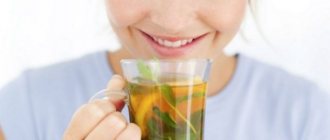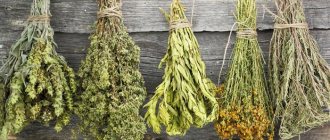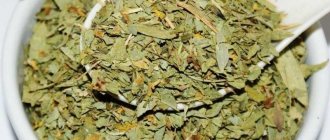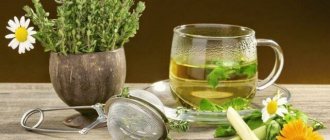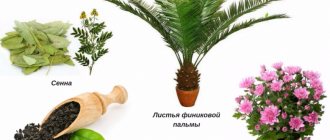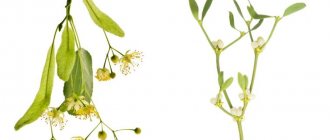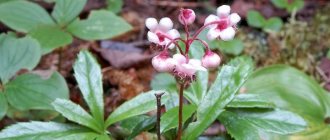The use of diuretic herbs for edema helps to remove excess fluid in case of heart failure (astragalus, valerian), decreased renal filtration (St. John's wort, Erva woolly), and hormonal disorders (oregano, sage).
A good effect is obtained in the treatment of edematous syndrome due to pyelonephritis (lingonberry leaf, nettle), urolithiasis (chamomile, half-palm). If swelling in the legs is associated with varicose veins, then the collections must include plants with a venotonic effect (rue, hawthorn flowers).
The basic principles of taking diuretic herbs are at least a week for an acute process and about a month for a chronic one, it is important to follow the dosage and undergo a doctor’s examination, take tests before the course and at the end. In pharmacies you can purchase easy-to-use preparations in filter bags: “Healthy Choice” renal, Nephrophyte with orthosiphon and others.
Causes of puffiness under the eyes
The cause of edema is excess fluid in the body due to poor outflow of blood and lymph. If there is increased pressure in the capillaries, then swelling on the face may also appear. Bags under the eyes may indicate low protein levels in the blood.
Edema occurs not only with pathologies of the urinary tract, but also with diseases of the heart and blood vessels, when it is also necessary to remove excess fluid from the body.
Expert Oksana Aleksandrovna Kim: about swelling
Director and chief physician of the ophthalmology clinic, has more than 10 years of practical work. In her opinion, the cause of edema may be the person himself:
- poor nutrition;
- drinking large amounts of fluids and alcohol in the evening;
- lack of sleep that has become chronic;
- excess salt.
In addition to reasons that depend on the person, swelling can also appear due to serious diseases. One of them is an allergic reaction of the body. This is an intolerance to pollen, food products, medications, household chemicals and components of animal protein compounds. No less serious reasons contributing to the occurrence of edema may be:
- infectious and viral diseases (ARVI, influenza, conjunctivitis);
- traumatic eye damage;
- chronic lack of sleep, interrupted sleep;
- constant drinking of alcohol, smoking;
- excessive consumption of salt, fatty foods, smoked meats, pickles;
- improper functioning of the pancreas (diabetes mellitus);
- increased intracranial pressure;
- stressful situations;
- cosmetics are the wrong choice;
- uncomfortable position chosen for sleeping;
- tattooing or Botox injection;
- neglect of hygienic facial cleansing.
Flu
Lack of sleep
Alcohol and smoking
Poor nutrition
Diabetes
How does herbal medicine work?
Herbs with a diuretic or diuretic effect have a mild effect on the human body, aimed at the pathological focus. In the absence of intolerance to any component, they have a beneficial effect on well-being. Some herbs disinfect and relieve pain, while others, by removing excess fluid with urine, act as an anti-inflammatory agent. In any case, you must first consult with your doctor which natural diuretics can be used for your diagnosis.
Diuretic herbs:
- normalize pressure, both fundus and intracranial;
- slow down the penetration of salt into the renal tubules;
- improve renal blood circulation;
- act as antioxidants;
- influence the course of epilepsy (beneficial);
- relieve muscle spasms.
Indications for taking diuretic herbs
You cannot use diuretic herbs on your own. A consultation with a nephrologist or urologist and examination to make a diagnosis are required. With long-term use of the diuretic herb, periodic replacement is necessary. The doctor should advise on the daily dosage and stages of preparing a decoction or tincture at home.
Indications for the use of natural diuretics:
- diseases of the urinary system with the presence of hypertension, inflammation, swelling;
- taking antibiotics for a long time;
- alcohol abuse, the consequences of a hangover, to remove toxic substances from the body;
- consequences of intoxication after food poisoning;
- prevention of stone formation after removal.
Decoctions and infusions are not a panacea for excess weight. Excess fat remains, only liquid leaves.
The benefits and harms of diuretic herbs
Diuretic herbs for edema are still used today in traditional medicine, but only under the supervision of a physician.
The use of natural herbal remedies has a number of advantages.
- Soft impact.
- High degree of efficiency - excess fluid is removed from the body even without the use of tablets.
- Relative safety for the body. In this matter, it is diuretic plants that differ favorably from drugs with the minimum number of contraindications and side effects.
- Minimizing the risk to the renal parenchyma, as well as to the condition of the ducts and bladder.
- The ability to reduce the risks of developing pathologies and inflammatory processes.
- Natural “medicines” can be used for much longer than their synthetic counterpart.
- Possibility of use in the treatment of various ailments.
- Complex effect - in addition to the removal of fluid, it reduces the level of pressure, inflammatory processes, and eliminates congestion.
The long list of advantages does not diminish the danger of using herbal remedies independently. You can use diuretic herbs for edema, but only under the supervision of your doctor.
This precaution is due to a number of negative aspects.
- Danger to the fetus during pregnancy. Under no circumstances should plants be used to remove accumulated fluid without the participation of a doctor.
- Personal intolerance that a person may not be aware of.
- Age restrictions – it is not recommended to use herbs or herbs under 6–12 years of age. The same applies to elderly people with a burden of a lot of diseases.
Contraindications for taking diuretic herbs
A preliminary consultation with a specialist is required if there is swelling; the use of diuretic herbs is not recommended for children, pregnant women and the elderly.
Absolute contraindications for the following diagnoses:
- disturbances in the outflow of bile;
- kidney damage or nephrosis;
- diabetes;
- gout;
- kidney stones, especially large ones;
- deficiency of zinc, potassium;
- state of acute renal failure.
Also, do not forget about allergic reactions of individuals to individual components.
When purchasing medicinal herbs, pay attention to the expiration date. Use without violating them, because the usefulness of the product becomes imaginary, now it may contain components harmful to health.
You can collect the necessary herbs yourself, following all the necessary rules for drying and proper storage.
What are the best diuretic herbs?
It is useless to argue who is better and who is worse. It’s better to make a rating of which herb is the most diuretic. So, here is the most powerful diuretic herb:
- Bearberry. its action is the most powerful and effective. If you doubt whether you need this, dilute the resulting concentrated infusion with boiled water. If you answer the question “which diuretic herb is best during pregnancy,” then definitely bearberry. Its action is even shown to ladies in an interesting position.
- Horsetail
- Nettle.
- Dandelion.
- Parsley.
- Lovage.
Herbalists who do their job well give a great gift to people. Here we have collected diuretic herbs that can be a good assistant in the fight against the underlying disease. But most often this is an auxiliary solution to the eternal question of which diuretic herbs to choose and use for weight loss.
Side effects
By using diuretic herbs for swelling uncontrollably, there is a risk that symptoms of dehydration may appear:
- general malaise, weakness;
- headache;
- allergic reactions;
- discomfort in the lower abdomen;
- constant thirst;
- broken stool;
- convulsive conditions of the lower extremities;
- reluctance to eat;
- hormonal imbalance;
- cardiopalmus;
- impossibility of emptying the bladder when the urge appears.
It is important to note that the appearance of even one of the signs described above should serve as a reason to stop taking the herbal mixture. A more complex case may even require emergency assistance from specialists. Taking decoctions and infusions while expecting a baby, depending on the timing, can provoke a miscarriage or the threat of a frozen pregnancy.
The most popular plants
Parsley seeds
Parsley is used in the treatment of swelling and has proven itself to be an effective and gentle remedy. The use of infusions and decoctions will remove excess fluid and harmful substances from the human body. By adding parsley, roots or seeds, you can prevent the occurrence of edema. The plant contains a large amount of flavonoids. These are antioxidants that fight the effects of free radicals on the body: they prevent the accumulation of excess fluid and tone tissues and cells.
Parsley seeds
Celery
The juice of the plant contains a large amount of minerals, almost all the vitamins necessary to maintain the human body in a healthy state. Traditional medicine uses celery to treat edema. Sodium, potassium and magnesium, which maintain water-salt balance, are contained in the juice of the plant. When consuming celery, the liver and kidneys are stimulated and the elimination of toxic substances is accelerated. Excess water is released from the body and the normal ratio of fluid in the interstitial space and tissues is restored. Scientists who have conducted research on the plant are confident that its action can be compared to ginseng.
Celery should not be taken by both pregnant and nursing mothers. The specific taste of breast milk depends on it and its production decreases.
Celery
Anise
It is used when it is necessary to remove swelling due to pathologies of the urinary tract. To prepare the infusion, you need to take only raw seeds. Pour two liters of boiling water over a teaspoon of raw materials. Leave for 3 days. Before each meal you should take a tablespoon. The seeds will help relieve swelling and normalize metabolism. Anise should not be used by pregnant women.
Anise
Linen
The fastest acting remedy. The patient feels the urge to urinate after the first intake of flax. In just 1-2 days, the fluid that caused the swelling can be removed from the body. The decoction is prepared from 3 tablespoons of flax seeds, which are poured with a liter of boiling water. The mixture should brew. If the resulting decoction is too bitter, add a little honey or a few drops of lemon juice to it. Treatment with seeds should be carried out when it is possible to be at home, since flax is a very strong natural diuretic.
Linen
Lingonberry leaves
Lingonberry leaves are saturated with minerals and vitamins: calcium, potassium, sodium, phosphorus, C, B. It is used as a prophylactic, immunostimulant and for the treatment of vitamin deficiency. The flavonoids that make up the plant have a positive effect on blood vessels, tone them, and normalize blood pressure. Protein, which is easily digestible, will help during rehabilitation after poisoning, after serious illnesses and a strict diet. All substances are antioxidants. They protect the cells of the human body from the effects of free radicals, which disrupt the process of normal tissue reproduction and accelerate aging.
Lingonberry leaves
Shepherd's Purse
The plant has astringent and anti-inflammatory properties.
Using shepherd's purse externally, as a lotion, relieves swelling, reduces inflammation, and can stop the bleeding of small wounds on the mucous membranes and on the surface of the skin. The use of medicinal herbs helps with the removal of stones, with diseases of the excretory system, and is used for inflammatory, severe processes. Shepherd's purse has a vasodilator, diuretic, and antifever effect. The plant normalizes sleep, has a calming effect and counteracts depression and stress. Traditional medicine uses shepherd's purse to cleanse the liver, kidneys, gall bladder, and for the heart muscle - as an additional vitamin.
Shepherd's Purse
Medicinal plants with diuretic effects
Natalia Sapronova, Ph.D., Associate Professor, specialist in the field of pharmacognosy
The arsenal of drugs includes herbal diuretics - these are mono- and combined drugs (infusions, decoctions, extracts, mixtures, tablets, etc.). Treatment with drugs is usually symptomatic as part of complex therapy.
Official sources of raw materials with a diuretic effect included in the State Pharmacopoeia of the Russian Federation and in private pharmacopoeia articles are cornflower flowers, lingonberries, orthosiphon (kidney tea), bearberry leaves, birch leaves and buds, horsetail, erva woolly grass, Lespedeza bicolor shoots, juniper fruits, etc. Silver birch (
Betula pendula Roth.)
and downy birch
(Betula pubescens Ehrh)
are deciduous trees of the birch family
(Betulaceae)
.
They grow in the European part of Russia, Altai, Caucasus and Western Siberia. In all climatic zones, from the tundra to the steppes, small-leaved forest species are widespread as forest-forming species. Unhatched buds are harvested in late winter and early spring, and leaves are harvested in summer, during the growing season. Birch buds (Betulae gemmae)
and leaves
(Betulae folia)
contain essential oil, resinous and tannin substances, flavonoids, saponins and other biologically active substances.
An infusion of birch buds and leaves has a diuretic and anti-inflammatory effect. Prescribed for mild to moderate cardiac and renal edema. The drugs are contraindicated in case of hypersensitivity, chronic renal failure, acute glomerulonephritis and in childhood (under 12 years). Common juniper (Juniperus communis L.
) is a wild evergreen coniferous tree or shrub of the cypress family (Cupressaceae).
They grow in forest and forest-steppe zones of the European part, Western and Eastern Siberia. They grow on limestone, dry hills, on dry mountain slopes, river banks, in the undergrowth of pine forests, and less commonly in sparse spruce, deciduous and mixed forests. Juniperi communis fructus)
are collected in the full ripening phase and dried .
The fruits contain sugars (up to 42%), organic acids (formic, acetic, malic), resinous substances (9.5%), essential oil (up to 2%), and also contain terpenoids (cadinene, terpineol, pinene, borneol), macro- and microelements. An infusion of juniper fruits has a diuretic effect and has anti-inflammatory and antimicrobial properties. Used for cardiac, renal and/or liver failure with edema syndrome and cystitis. Contraindicated in case of hypersensitivity to the drug, acute inflammatory kidney diseases, pregnancy, lactation and childhood (under 18 years). Aerva lanata (L. ) Juss. ex Schult.)
is a cultivated herbaceous plant of the amaranth family (
Amaranthaceae)
.
It grows in many countries in Africa, Saudi Arabia, India, Indonesia, Papua New Guinea and Australia. Ervae woolly grass (Aervae lanatae herba)
is harvested in the flowering phase - the beginning of fruiting and dried. The herb contains flavonoids, sterols, phenolic acids, macro- and microelements and other biologically active substances. An infusion of erva woolly herb has a diuretic as well as a moderate anti-inflammatory effect, removes sodium, calcium and potassium ions. When using the drug, the urea content in the blood serum decreases. Used as part of complex therapy in adults as a diuretic for moderate edema syndrome, infectious and inflammatory kidney diseases (pyelonephritis). Contraindications to the use of Erva Woolly preparations: hypersensitivity to the drug, osteoporosis, diseases accompanied by increased excretion of calcium from the body, including hypoparathyroidism, rickets, renal osteodystrophy, pregnancy, lactation, children under 18 years of age. Combined preparations, such as “Urological”, “Diuretic No. 2” and others, also include components of medicinal plants that have not only a diuretic, but also a moderate anti-inflammatory and antimicrobial effect. "Diuretic collection No. 2." Composition: bearberry leaves (40%), licorice roots (20%), common juniper fruits (40%). It has a diuretic, moderate anti-inflammatory and antimicrobial effect in inflammatory diseases of the urinary tract (cystitis, pyelitis), edema. The collection is contraindicated in case of hypersensitivity to its components, nephritis, pregnancy and during breastfeeding, as well as in childhood (under 18 years). It should be used with caution in case of urolithiasis. Phytonephrol (“Urological collection”). Composition: bearberry leaves (40%), marigold flowers (20%), dill fruits (20%), eleutherococcus senticosus rhizomes and roots (10%), peppermint leaves (10%). The decoction is used as a diuretic, antimicrobial, anti-inflammatory and antispasmodic agent in the complex therapy of inflammatory diseases of the kidneys and urinary tract. Contraindicated in case of hypersensitivity to the components of the collection, pregnancy, during breastfeeding and in childhood (under 12 years). Prescribe with caution also for urolithiasis.
Natural diuretics for facial swelling
The following plants:
- flax seeds;
- half fell;
- corn silk;
- beet leaves.
flax seeds
Half-fallen
Corn silk
Beet leaves
Herbs for swollen legs
Horsetail
Eating horsetail helps eliminate the problem of protein in urine. The plant stimulates urination and disinfects the urinary tract. Herbal decoctions help relieve swelling of the heart and kidneys. Along with the diuretic effect, an analgesic effect was also detected. Horsetail has long been used in the treatment of various diseases of the musculoskeletal system, internal bleeding, and the presence of kidney stones.
In case of exacerbation of diseases of the stomach or intestines, it is better to consult a doctor. The use of herbal infusion is not recommended for nephrosis, nephritis, pregnant women, and children. Adverse reactions are extremely rare. Long-term, improper use of medicinal herbs can provoke digestive upset and allergic reactions.
Horsetail
Chamomile
Chamomile has not only a diuretic effect, but also analgesic, anti-inflammatory, choleretic, carminative, astringent, sedative, antispasmodic and antiallergic. The plant contains chamazulene. It is this substance that calms the nervous system, stimulates brain function, activating blood circulation in the brain vessels, and has a beneficial effect on the digestive organs.
Chamomile has a calming, positive effect on all skin types, therefore it relieves various inflammations and itching, helps eliminate swelling and redness. During pregnancy, use is prohibited, and when breastfeeding, use must be approached with caution. Before using chamomile infusions and decoctions, it is necessary to consult a doctor for those people who take vital medications and those who have chronic diseases. If you are hypersensitive, do not use the plant for treatment.
Chamomile
Bearberry
The plant has a powerful diuretic effect. To prepare the decoction, pour a teaspoon of leaves into 100 ml of boiling water and simmer over low heat for up to half an hour. Then strain, add another 100 ml of boiled water to the broth. Use 40 minutes before meals, 1 tablespoon, 6 times a day.
Bearberry
Nettle
Dried and fresh stems, leaves and oil are used as a diuretic.
- Nettle massage oil: to prepare it, chop fresh leaves and mix with sunflower oil in the same ratio. Then the resulting mass is heated in a water bath until it boils. When cooled, rub into the skin of the feet.
- An infusion of a mixture of herbs and nettles: mix equal parts of nettle leaves, St. John's wort and chamomile (1 tsp each), then pour boiling water over it and let steep for 1 hour. Next, divide the infusion into 5 parts, take before meals during the day.
Nettle
Melissa
The herb is a strong natural diuretic. Reduces pain symptoms in pathologies of the excretory system, urolithiasis. Relieves inflammatory processes, the presence of intoxication, improves the acidity of urine. To prepare the decoction, pour 200 ml of boiling water over a tablespoon of dry stems and leaves of the plant, boil for 10 minutes and strain. Take 1 tablespoon before meals.
Melissa
Top 10 Diuretic Herbs
There are many herbs, flowers, plants, leaves, roots, fruits that will help get rid of swelling. You should choose the right ones based on the characteristics of the effect on the body, composition and expected result. Particular attention is paid to the disease to be treated.
Milk thistle
This herb should be used carefully; it is often included in preparations that should be pre-approved by your doctor. Only 1 tbsp should be used to prepare decoctions. l. collection with milk thistle, drink warm before meals.
Thyme
For cooking, you should purchase dried thyme, which is available in many pharmacies. For cooking use 1 tbsp. l. for 200 ml of boiling water. Leave the tea for 20 minutes and then drink. Drink before meals - 30 minutes.
It is customary to combine thyme with linden and mint to get an excellent effect - use 1 tsp to make tea. crushed dried plants.
Calendula
1 tbsp. l. Infusion from the flowers of the plant is taken 2-3 times a day. It has a diuretic and strengthening effect, and has a beneficial effect on the heart.
Horsetail
It is used in a certain proportion - for half a liter of boiling water you will need 4 tbsp.
l. dry herb, which is easy enough to infuse. Use 2 tbsp. l. warm infusion on an empty stomach three times a day. You will need to wait at least 30 minutes before eating. Do not use the product if you have gastrointestinal diseases, during pregnancy or with cholelithiasis!
Birch
All you need is tree leaves, which can be pre-washed and dried, and then thoroughly chopped. Brew 2 tsp. crushed composition per 200 ml of boiling water. Leave for 20 minutes, then strain and consume 100 ml twice a day before meals.
Birch leaves should be collected only in ecologically clean areas. You should not choose roadsides or places near factories for this.
Linden
You can use the decoction 3 times a day. To prepare, use dried linden blossom - 1 tbsp. l. for 200 ml of boiling water. Consume warm before meals. You can add a little honey for taste.
It is also recommended to use a decoction of linden blossom for high blood pressure, neuroses, frequent respiratory diseases, and gastrointestinal diseases.
Valerian
Allows you to relieve swelling, although doctors talk about the weak diuretic effect of the plant. It is better to use it in combination with other components - with mint in equal proportions. Use 1 tbsp. l. collection in 200 ml of boiling water, drink once a day.
Motherwort
1 tablespoon is brewed in 300 ml of boiling water, infused and drunk before meals 2 times a day. You can prepare a collection for which you should use motherwort - 2 parts, bearberry - 4 parts, juniper berries - 4 parts. Use only 2 tbsp. l. 300 ml of boiling water, leave for 20 minutes, and then drink.
Mint
Tea should be prepared from the plant. Mint leaves can be used fresh, but pre-washed. The dried leaf is also recommended for use. To prepare tea, use 2 tsp. chopped mint, pour boiling water over it - 200 ml - for 20 minutes. Drink warm on an empty stomach 2-3 times a day.
It is recommended to use mint decoctions for people with high blood pressure, neuroses, and insomnia. But hypotensive people are not advised to drink such teas.
Oregano
A plant with a pronounced, pleasant aroma is usually used as part of teas, although you can also drink tea from it on its own. For cooking use 2 tsp. dry plant, pour 250 ml of boiling water, cover the cup with a lid and leave for 30 minutes. Drink before meals or between meals.
Herbal diuretic tablets
Taking medications to relieve swelling is necessary. They remove excess exudate, which is located in the subcutaneous tissue and puts pressure on the nerve endings. As a result, severe pain occurs.
Herbal diuretic tablets
Name and effect of the medicine:
- Flaronin. It has a powerful diuretic effect and improves blood circulation in the kidneys. Used for a month, 3 times a day.
- Lespenefril. Increases filtration in the renal tubules, reduces the ratio of nitrogenous substances in the blood, improves urination. Indicated for use in kidney diseases. Available in tincture form.
- Aflazin or hibiscus extract. Has anti-inflammatory, diuretic effect. Do not use for children under 6 years of age and pregnant women. Allergic reactions are possible.
- Phytolysin. Without chemical components, plant based, available in the form of a paste. For use: dissolve 0.5 teaspoon in a glass of warm water. Apply 3 times a day.
Flaronin
Lespenefril
Aflazin
Phytolysin
The best diuretic herbs for edema: which ones you should drink and which ones you shouldn’t
Diuretic herbs for edema should be taken taking into account the cause of the appearance - oregano will help with premenstrual symptoms, and St. John's wort and chamomile are used for pyelonephritis. Flax seeds and valerian are not included in the list of diuretic herbs, but they are added to preparations for the treatment of kidney and heart failure.
If you need strong diuretic herbs, then we recommend astragalus, lingonberry leaf, and woolly erva (pol-palu). Also, a noticeable diuretic effect is given by: cumin, dandelion, lovage, parsley, kidney tea, knotweed and horsetail, juniper berries.
Oregano
Oregano herb has a mild diuretic effect, it helps with swelling before menstruation, of allergic origin. For renal and cardiac problems, it is used only as part of preparations. Additional therapeutic actions:
- expectorant
- choleretic,
- soothing,
- stimulates appetite,
- improves food digestion.
To reduce swelling, brew at the rate of 1 tablespoon per 300 ml of boiling water, infuse in a sealed container for 30 minutes, take a third of a glass 3 times a day, half an hour before meals.
St. John's wort
This natural diuretic is used for urolithiasis and reduced filtration capacity of the kidneys, sodium and fluid retention in the body. The infusion is prescribed for the treatment of pyelonephritis, an abundance of salts in the urine, the appearance of protein, leukocytes, and casts. St. John's wort herb successfully treats cystitis (inflammation of the bladder) and urethritis (infection in the urethra). In case of exacerbation of inflammatory processes, the plant is used after a course of antibiotics.
To prepare a decoction, take a tablespoon of dry herb and pour a glass of boiling water. The mixture is kept in a water bath for 12 minutes and filtered. Take a quarter glass 4 times a day before meals. It is recommended to drink at least 1.5 liters of regular drinking water. The course of treatment lasts about 1 month, then you must take a break for 2 weeks.
It is important to consider that this diuretic herb is considered harmless, but in overdose it causes insomnia; it is contraindicated for oral administration by pregnant, lactating, and children under 12 years of age. Many medications are incompatible with St. John's wort (for example, hormones, Warfarin, Aspirin).
Chamomile
Chamomile flowers have a weak diuretic effect, they are most often used with other diuretic herbs (removing excess fluid). Chamomile exhibits the most antispasmodic effect and is needed to relieve spasm of the ureters in case of urolithiasis and increased formation of salts. The herb reduces congestion in the urinary tract and has a good anti-inflammatory effect.
For example, for edema due to pyelonephritis, a mixture is prepared from equal parts of chamomile, birch buds and St. John's wort. A tablespoon of the mixture is poured into a glass of boiling water and left for 1 hour in a closed container. You need to take 50 ml warm before meals 4 times a day for a month.
Linen
Flax seeds are used for kidney failure, but not because of the diuretic effect, but due to the ability to bind and remove toxic compounds from the body. They also improve fat metabolism and normalize cholesterol levels in nephrotic syndrome (occurs against the background of nephritis). For course use, prepare an infusion from a teaspoon of ground flax seeds and 100 ml of hot water. After an hour, the herbal medicine is ready for use. Take 2 servings a day an hour before meals. Recommended 3 weeks of use and 2 weeks off.
Nettle
Nettle exhibits a moderate diuretic effect; it is used for edema in patients with pyelonephritis, urolithiasis, dropsy, hematuria (blood in the urine) after the stone moves through the urinary tract. It should not be used for heart failure and varicose veins of the lower extremities, as it increases blood clotting and can cause blood clots.
To prepare tea, take a teaspoon of dried nettle leaves and stems and pour a glass of boiling water. Leave for 15 minutes, filter, take 50 ml 4 times a day an hour after meals. Application continues until swelling decreases.
Sage
Sage is indicated for edema during menopause, as it has a pronounced phytoestrogenic effect, that is, similar to female sex hormones. The herb is included in preparations for the treatment of pyelonephritis and urolithiasis. Data have emerged on the effectiveness of sage infusion for diabetic nephropathy (kidney damage due to diabetes). The infusion is prepared at the rate of 1 tablespoon per 200 ml of boiling water, infuse for 40 minutes and take 20 ml 30 minutes before meals 4-6 times a day. The course of treatment is 3 weeks, then take a break for 1 month.
Valerian
Valerian rhizome does not have an independent diuretic effect. This plant can be included in preparations for edema if they are combined with high blood pressure and heart pain. Due to its ability to relieve spasms of the ureters, valerian is prescribed for the prevention and treatment of a mild attack of renal colic due to urolithiasis.
In the latter case, take 20 drops of mint and valerian tincture at a time and mix with 50 ml of warm water. For regular use, you can prepare tea from ground roots and leaves of mint and lemon balm in equal parts. A tablespoon of the mixture is poured into a thermos with a glass of boiling water. Then you need to leave for 2 hours, strain and take half a glass after lunch and dinner.
Astragalus
Astragalus is good for cardiac and kidney edema. This plant reduces blood pressure, dilates the blood vessels of the heart, relieves spasm of the arteries of the kidneys, and accelerates renal blood circulation. The infusion is prepared at the rate of a tablespoon per 100 ml of boiling water, leave for 30 minutes and take a tablespoon 4 times a day after meals. The course of treatment lasts 20-30 days.
Cowberry
Lingonberry leaf stimulates urine excretion and disinfects the kidneys, bladder and urethra. The plant is often recommended by nephrologists to eliminate edema in pyelonephritis, pyelitis, kidney stones, and gouty nephritis.
To prepare the decoction, take 10 g of crushed leaf (a dessert spoon of powder without the top) and pour a glass of boiling water, keep on low heat for 5 minutes and immediately filter. You need to take a third of a glass an hour before meals 3 times a day for 15 days. Then take a break for 2 weeks and repeat the dose if necessary.
Erva woolly
This plant is also called pol-pal, the herb has a pronounced diuretic effect, relieves inflammation and removes fine sand from the kidneys. Erva is indicated for renal edema; it also helps with high blood pressure, as it removes sodium and excess fluid from the body. It is recommended for moderate edematous syndrome and pyelonephritis.
Do not use during pregnancy, breastfeeding, for children under 12 years of age and with a tendency to bone tissue destruction (osteoporosis, increased function of the parathyroid glands).
A tablespoon of herb is placed in an enamel (mandatory) bowl and poured with a full glass of hot water. Boil in a water bath for 20 minutes, and then turn off the fire and keep under the lid for another 20 minutes, filter. Take a quarter glass of warm broth at a time and take it an hour before meals 2-3 times a day. Application lasts from 1.5 to 3 weeks, then a break will be required for at least a month.
Rules for preparing herbs
Decoctions
It is recommended to consume all decoctions and infusions before 16:00. This advice is necessary because there will be no regular toilet visits due to the diuretic effect of the herbs, which will allow you to get a good night's sleep. It is also recommended to follow all doctor’s orders and take into account that diuretics have a cumulative effect. Therefore, the first results can be expected only some time after the start of regular treatment.
Sodium, potassium, and all electrolyte levels should be checked during recommended therapy.
Tea
Drinking tea as a medicinal product is recommended after lunch, when the gastrointestinal tract is in the active phase. It is prohibited to independently select drinks for the elderly, children and pregnant women. If you drink tea for a long time, you need to change its composition and first consult a doctor. To avoid dehydration, you need to drink more clean water.
Infusions
Herbs that have a diuretic effect are used as a basis for preparing tinctures with alcohol or vodka. The raw materials must be thoroughly washed and crushed. Fill a container with a lid two-thirds full with herbs. Then add high-quality vodka or alcohol. Infuse for a month. Store in a dark place. If you experience pain in the kidneys or in the heart area, allergic reactions, unstable blood pressure (jumps), you should stop taking the herbal mixture and consult a specialist for medical help.
Ice
Frozen herbal infusions have a deep effect on the skin, moisturize it and provide it with nutrients. Apply these ice cubes in the morning and rub the face for 3 minutes. After the ice procedure, you need to apply cream.
For dry skin, dilated blood vessels, inflammation and scratches, frozen infusions should not be used. It is also not recommended to use ice before going outside in the winter.
How to prepare: for the decoction it is better to use water, having previously filtered it. Pour the infused broth into ice molds and let it harden in the freezer.
Other anti-edema remedies
To take all medications for edema, you must consult a doctor. You need to make sure that the composition does not contain parabens, fragrances, dyes, animal or mineral fats. Such substances can accumulate and cause harm to the body. Problem areas with swelling should be treated twice a day, in the evening two hours before bedtime. Cleanse facial skin, remove makeup. Do not stretch the skin, rub the eyelids, put pressure on the eye area, or apply medications to the edge of the eyelid.
Ointments and gels
Blepharogel is the most popular.
It contains hyaluronic acid and aloe juice, glycerin. These substances help remove puffiness, fine wrinkles, moisturize the skin, and heal small wounds. Heparin ointment, in addition to its main use, is used by cosmetologists. The components included in its composition promote the resorption of bruises and bruises under the eyes, and reduce wrinkles.
Traumeel is a homeopathic ointment. Chamomile, belladonna, arnica, witch hazel, which are part of it, have a regenerating and calming effect
Troxevasin - gel. Can be used as a remedy against edema, promotes the resorption of hematomas.
Troxerutin. Decongestant, anti-inflammatory, venotonic, angioprotective and antioxidant agent.
Blefarogel
Heparin ointment
Traumeel
Troxevasin
Troxerutin
Cosmetical tools
The line of cosmetics for bags and puffiness under the eyes is presented in the form of firming or moisturizing creams that are applied under basic makeup. There are also cooling ointments and creams for the delicate area around the eyes. Before the first use of care products, it is necessary to conduct a test to exclude the occurrence of allergic reactions. You need to apply a small amount of cream or ointment to your wrist and observe for half an hour. The lack of reaction makes it possible to use the care product. If allergies occur, it should not be used.
Cosmetic masks help eliminate swelling. You can choose one that suits you, both in a pharmacy and in a chain of stores. Massaging the area around the eyes and the entire face will help cope with swelling. It improves skin elasticity, reduces muscle tension, promotes tissue regeneration and activation of cellular metabolism, and eliminates swelling of the eyelids. Massage should be carried out after cleansing the facial skin with special products. After the procedure, apply cream or use a mask.
Chamomile
In addition to its widely known anti-inflammatory and calming effects, chamomile also has this effect. Usually the plant is sold in pharmacies in winter in the form of convenient filter bags. 1-2 of this is enough for a glass of chamomile tea to be ready. You can drink it 3 times a day, half a glass.
Chamomile is used for various edema of infectious origin and inflammatory kidney diseases. And also for disorders of the nervous system. Its effect is quite mild. If there is a serious problem, it is running, then it will be necessary to reinforce the action of chamomile with others. Think about what a strong diuretic herb can strengthen it.
